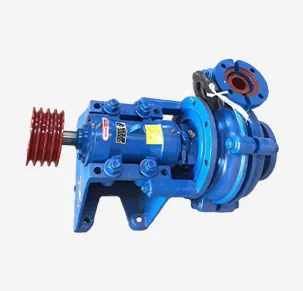Slovak
- Afrikaans
- Albanian
- Amharic
- Arabic
- Armenian
- Azerbaijani
- Basque
- Belarusian
- Bengali
- Bosnian
- Bulgarian
- Catalan
- Cebuano
- Corsican
- Croatian
- Czech
- Danish
- Dutch
- English
- Esperanto
- Estonian
- Finnish
- French
- Frisian
- Galician
- Georgian
- German
- Greek
- Gujarati
- Haitian Creole
- hausa
- hawaiian
- Hebrew
- Hindi
- Miao
- Hungarian
- Icelandic
- igbo
- Indonesian
- irish
- Italian
- Japanese
- Javanese
- Kannada
- kazakh
- Khmer
- Rwandese
- Korean
- Kurdish
- Kyrgyz
- Lao
- Latin
- Latvian
- Lithuanian
- Luxembourgish
- Macedonian
- Malgashi
- Malay
- Malayalam
- Maltese
- Maori
- Marathi
- Mongolian
- Myanmar
- Nepali
- Norwegian
- Norwegian
- Occitan
- Pashto
- Persian
- Polish
- Portuguese
- Punjabi
- Romanian
- Russian
- Samoan
- Scottish Gaelic
- Serbian
- Sesotho
- Shona
- Sindhi
- Sinhala
- Slovak
- Slovenian
- Somali
- Spanish
- Sundanese
- Swahili
- Swedish
- Tagalog
- Tajik
- Tamil
- Tatar
- Telugu
- Thai
- Turkish
- Turkmen
- Ukrainian
- Urdu
- Uighur
- Uzbek
- Vietnamese
- Welsh
- Bantu
- Yiddish
- Yoruba
- Zulu
Telephone: +86 13120555503
Email: frank@cypump.com
nov . 17, 2024 01:27 Back to list
septic field pump
Understanding Septic Field Pumps Functions and Importance
Septic systems are often overlooked when it comes to home maintenance, yet they play a crucial role in keeping our wastewater management effective and environmentally friendly. One integral component of these systems is the septic field pump, also known as the effluent pump. Understanding its functions, importance, and maintenance will ensure your septic system operates efficiently and can save homeowners from the costly repairs associated with septic system failures.
What is a Septic Field Pump?
A septic field pump is a type of submersible pump used in a septic system to move wastewater from the septic tank to the drain field, or leach field. Once wastewater flows into the septic tank, it undergoes a natural process of separation where solids settle at the bottom while lighter materials, such as grease, float to the top. The effluent, which is the partially treated liquid in the middle, is then pumped into the drain field where it can be further treated by soil bacteria before being reintroduced into the groundwater system.
Functions of a Septic Field Pump
The primary function of a septic field pump is to transport effluent from the septic tank to the drain field, especially in situations where the septic tank is installed below the level of the drain field. By using a pump, homeowners can ensure that wastewater is effectively and efficiently moved away from their property. Additionally, these pumps help prevent overwashing of the leach field, which can occur during heavy rain or other flooding scenarios when the soil becomes saturated.
Moreover, in some systems, the septic field pump is equipped with a float switch, which regulates the pump's operation based on the water level in the tank
. When the water reaches a certain level, the float triggers the pump to activate, maintaining a steady flow of effluent to the leach field.Importance of Maintaining Your Septic Field Pump
Like any mechanical component, septic field pumps require regular maintenance to ensure they function properly. Here are several reasons why maintaining your septic field pump is essential
1. Preventing System Failure A malfunctioning pump can lead to serious plumbing issues, such as sewage backups and odors in your home. Regular maintenance can catch potential problems before they escalate into full system failures.
2. Cost Savings Replacing a septic field pump can be costly. By keeping up with maintenance, homeowners can avoid the expensive bills associated with pump replacement or major repairs caused by neglect.
septic field pump

3. Environmental Protection If a septic field pump fails, untreated wastewater can leak into the environment, posing risks to groundwater and local ecosystems. Properly functioning pumps help ensure that wastewater is treated correctly, minimizing environmental impacts.
4. Increasing Lifespan Routine checks and maintenance can extend the life of your septic field pump, saving homeowners the hassle and expense of untimely replacements.
Maintenance Tips
To keep your septic field pump functioning efficiently, consider these maintenance tips
- Inspect Regularly Check the pump and associated components for signs of wear and tear. Look for leaks or corrosion, which can indicate potential issues.
- Monitor Float Switch functionality Test the float switch periodically to ensure it correctly activates the pump. This can prevent situations where the pump fails to operate when needed.
- Limit Water Usage Being mindful of water usage in your household can prevent overwhelming the septic system, reducing wear on the pump.
- Schedule Professional Inspections Having a professional inspect your septic system, including the pump, at least once every three years will provide peace of mind and ensure everything is operating seamlessly.
Conclusion
Septic field pumps are vital for the effective operation of septic systems, particularly in homes where gravity alone cannot move wastewater to the drain field. Understanding their functions, the importance of their maintenance, and implementing simple upkeep measures can lead to a more efficient, environmentally responsible, and cost-effective septic system. By prioritizing your septic health, you not only enhance your property’s value but also contribute to the sustainability of our environment.
-
Heavy-Duty Mining Sludge Pumps - Wear-Resistant Slurry Handling
NewsAug.02,2025
-
Horizontal Split Case Pump with GPT-4 Turbo | High Efficiency
NewsAug.01,2025
-
ISG Series Pipeline Pump - Chi Yuan Pumps | High Efficiency, Durable Design
NewsAug.01,2025
-
Advanced Flue Gas Desulfurization Pump with GPT-4 Turbo | Durable & Efficient
NewsJul.31,2025
-
ISG Series Vertical Pipeline Pump - Chi Yuan Pumps | Advanced Hydraulic Design&Durable Construction
NewsJul.31,2025
-
ISG Series Vertical Pipeline Pump - Chi Yuan Pumps | Energy Efficient & Low Noise
NewsJul.31,2025










